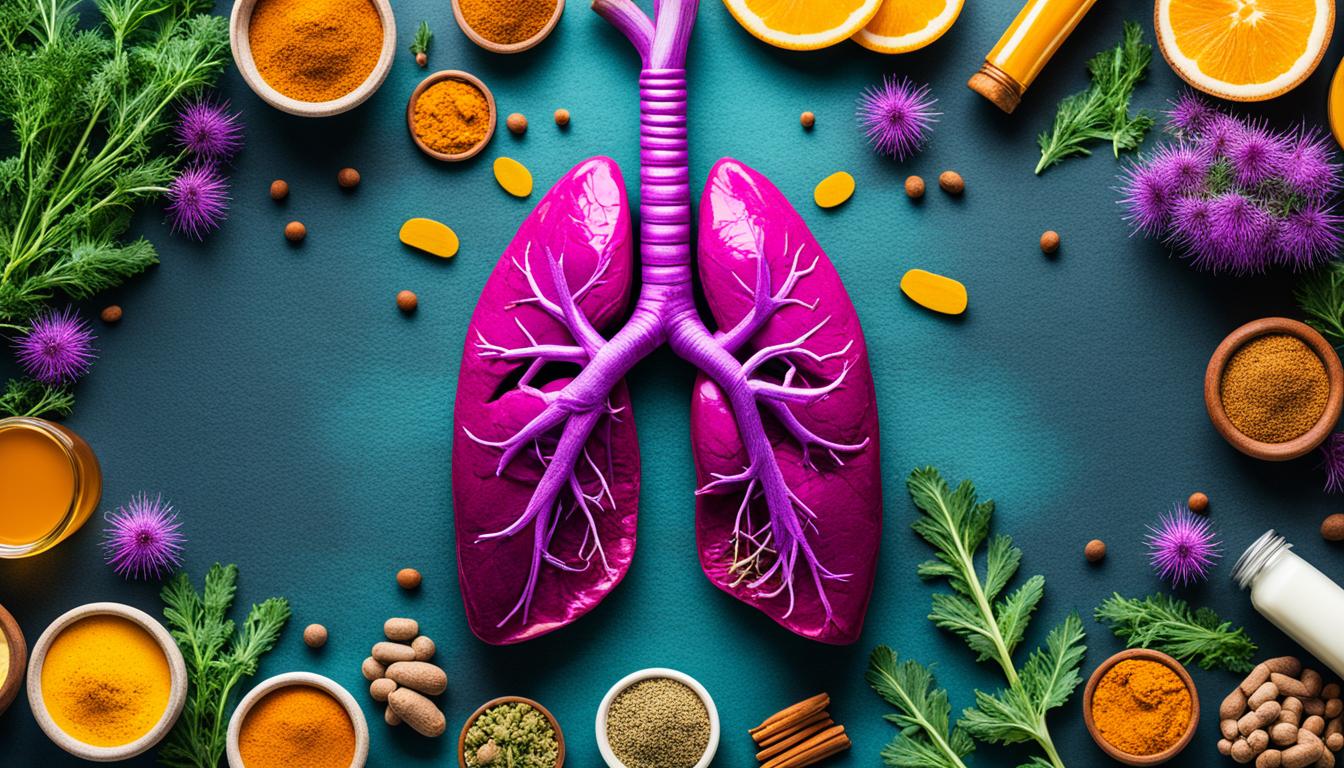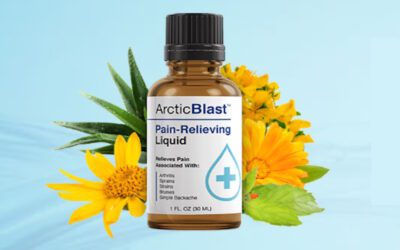Your liver plays a crucial role in supporting your overall health and well-being. It is responsible for detoxification, protein synthesis, hormone production, and digestion.
To ensure the best possible liver function, you may consider incorporating a liver health supplement into your routine.
A liver health supplement is designed to support liver detoxification, cleanse the liver, and promote optimal liver function.
By taking a liver supplement, you may enjoy various benefits, such as improved liver health, enhanced liver function, protection against liver cell inflammation, increased bile production, boosted metabolism, and support for respiratory and immune system function.
It’s important to note, however, that not all liver supplements are created equal. While some herbal and dietary supplements claim to rejuvenate and detoxify the liver, it’s essential to examine the scientific research behind these claims.
Many liver supplements contain a combination of herbal ingredients, vitamins, and minerals. Popular ingredients include milk thistle, zinc, and licorice root.
While some studies suggest potential benefits of these ingredients in reducing liver injury risk and lowering liver enzyme levels, further research is needed to determine the overall effectiveness of liver supplements.
It’s crucial to be aware that taking herbal and dietary supplements can carry certain risks. Research shows that these supplements are responsible for a significant percentage of liver injuries in the United States.
In fact, herbal dietary supplements have been found to cause more severe liver injuries than conventional medications. Common complications of liver injury include reduced blood clotting, jaundice, and abdominal swelling.
Therefore, before incorporating any liver health supplement into your routine, it’s recommended to consult with a healthcare professional.
They can provide personalized guidance based on your individual needs and potential interactions with other medications you may be taking.
To optimize your liver health, it’s also important to adopt a healthy lifestyle. This includes limiting saturated fat intake, moderating alcohol consumption, avoiding exposure to toxins, and minimizing chronic drug use.
By making these lifestyle choices and incorporating a liver health supplement, you can support your liver’s optimal function and overall well-being.
The Risks of Liver Supplements
Liver supplements can carry significant risks, including liver injury.
Available data suggest that herbal dietary supplements are responsible for a significant number of liver injuries in the United States, with more severe liver injuries seen compared to conventional medications.
Liver injury from these supplements can result in complications such as reduced blood clotting, abdominal swelling, jaundice, and even brain damage.
The risk of liver transplant and death is higher among people who take herbal dietary supplements compared to those taking pharmaceutical medications.
It is important to note that the FDA regulates supplements differently than medications and does not require the same level of safety testing.
Manufacturers can begin selling or marketing supplements without FDA approval. This lack of regulation and oversight increases the potential risks associated with liver supplements.
| Risks of Liver Supplements | Conventional Medications | Herbal Dietary Supplements |
|---|---|---|
| Liver Injury | Less common | Significant number of cases |
| Severity of Liver Injury | Less severe | More severe |
| Complications | Less frequent | Reduced blood clotting, abdominal swelling, jaundice, brain damage |
| Risk of Liver Transplant and Death | Lower | Higher |
Tips for Maintaining Liver Health
While liver supplements may not have sufficient scientific evidence to support their effectiveness, adopting certain lifestyle choices can help maintain liver health.
By implementing the following practices, you can contribute to the well-being of your liver:
- Limit Saturated Fat Intake: Consuming excessive saturated fat can lead to high levels of triglycerides and cholesterol in the blood, which may result in the accumulation of fat deposits in the liver and long-term damage.
- Moderate Alcohol Use: Excessive alcohol consumption poses a significant risk to liver health, contributing to various liver diseases and other chronic conditions.
- Avoid Exposure to Toxins: Be mindful of exposure to toxins found in cleaning products, pesticides, and tobacco smoke. The liver plays a vital role in filtering these substances from the blood, making it susceptible to damage.
- Minimize Chronic Drug Use: Both illicit drugs and certain prescription and over-the-counter medications can cause inflammation and damage to the liver. Consult with a healthcare professional to understand potential risks and seek alternatives when necessary.
It’s important to prioritize these practices as part of your overall health routine.
If you experience symptoms of liver disease or have a history of exposure to hepatitis viruses, consulting with a healthcare professional is crucial for appropriate guidance and care.

Expert Insight
“Maintaining liver health involves adopting a balanced lifestyle. Limiting saturated fat intake and alcohol use, avoiding exposure to toxins, and minimizing chronic drug use are essential practices that can significantly contribute to liver well-being.”
Debunking Liver Health Myths
Liver cleanses have gained popularity as a supposed solution for daily liver health, weight loss, and treating liver damage.
However, it is important to separate fact from fiction when it comes to liver health myths.
While some ingredients in liver cleanses have shown promise in scientific studies, there is insufficient clinical trial data to recommend their routine use.
Hepatologists, liver specialists, do not endorse liver cleanses as a reliable method for maintaining liver health.
These products are not regulated by the FDA and have not undergone rigorous testing in clinical trials. Hence, their safety and efficacy remain questionable.
While individual ingredients like milk thistle and turmeric extract have been studied for their potential benefits, their overall impact on liver health requires further investigation.
For instance, milk thistle has shown positive results in reducing liver inflammation, while turmeric extract may have protective effects against liver injury.
It is important to note that liver cleanses are not proven to be a safe and healthy way to lose weight.
Instead of relying on liver cleanses, the best approach to support liver health is to focus on maintaining a healthy lifestyle. This includes a balanced diet, regular exercise, and avoiding behaviors that put the liver at risk.
Here are a few key points to remember:
- Liver cleanses are not recommended by hepatologists.
- Liver cleanses are not regulated by the FDA and lack sufficient scientific evidence.
- A healthy lifestyle is the most effective way to support liver health.
By making informed choices and prioritizing a healthy lifestyle, individuals can take proactive steps towards maintaining optimal liver function and overall well-being.
Protecting Against Liver Disease
Contrary to the myth that liver disease cannot be prevented, there are steps that can be taken to protect against liver disease. By making certain lifestyle choices and undergoing regular screenings, individuals can reduce their risk and promote liver health.
Limit Alcohol Consumption
Excessive alcohol consumption is a leading cause of liver disease, including alcoholic liver disease. To prevent this condition and maintain optimal liver health, it is important to limit alcohol intake or avoid it altogether. Moderate alcohol consumption guidelines recommend no more than one drink per day for women and two drinks per day for men.
Manage Body Weight
Weight management plays a significant role in preventing liver disease, particularly nonalcoholic fatty liver disease (NAFLD). Maintaining a healthy body weight through a balanced diet and regular exercise can help prevent the accumulation of fat in the liver.
Avoid Risky Behaviors
Engaging in risky behaviors, such as illicit drug use and unprotected sex with multiple partners, can increase the risk of viral hepatitis. Taking precautions to avoid these behaviors is crucial in protecting against liver disease. It is also important to be aware of any potential risk factors for liver disease, such as excessive alcohol use or a family history, and take appropriate measures to minimize the risk.
Undergo Screening
Regular checkups and screening appointments are essential for early detection and management of liver disease.
Depending on individual risk factors and medical history, healthcare professionals may recommend screening tests such as liver function tests, viral hepatitis tests, or imaging studies to assess liver health and detect any signs of damage or disease.
By adopting a healthy lifestyle, avoiding risky behaviors, and undergoing regular screenings, individuals can take proactive steps to protect against liver disease and maintain optimal liver health.

Ingredients That May Support Liver Health
While liver detox supplements may not have strong scientific evidence to support their effectiveness, there are ingredients that have been studied for their potential benefits in supporting liver health.
Vitamin E is an antioxidant that may help protect liver cells from oxidative stress and improve liver enzyme levels in nonalcoholic fatty liver disease.
Milk thistle, specifically its active compound called silymarin, is widely known for its potential liver benefits, including antioxidant and anti-inflammatory properties.
Turmeric, containing the active compound curcumin, may have antioxidant and anti-inflammatory properties that support liver function.
N-acetylcysteine (NAC), a precursor to glutathione, an antioxidant involved in liver detoxification, has shown potential in treating liver toxicity caused by substances like acetaminophen overdose.
It is important to consult with a healthcare professional before relying on supplements, as individual needs and potential drug interactions should be considered.

| Liver Health Ingredient | Potential Benefits |
|---|---|
| Vitamin E | Protects liver cells from oxidative stress |
| Milk Thistle (Silymarin) | Has antioxidant and anti-inflammatory properties |
| Turmeric (Curcumin) | Supports liver function with antioxidant and anti-inflammatory properties |
| N-acetylcysteine (NAC) | Treats liver toxicity caused by substances like acetaminophen overdose |
Conclusion
Maintaining optimal liver health is crucial for overall well-being and the proper functioning of the body.
While liver supplements are widely marketed as effective tools for detoxification and liver support, scientific evidence to support their claims remains limited.
It is important to recognize that liver supplements come with inherent risks, including potential liver injury.
Moreover, these supplements are regulated differently than medications by the FDA, meaning they do not undergo the same rigorous safety testing.
Instead of solely relying on liver supplements, making proactive lifestyle choices can significantly contribute to liver health.
This includes limiting saturated fat intake, moderating alcohol consumption, avoiding exposure to toxins, and minimizing chronic drug use.
If you are concerned about your liver health or considering liver supplements, it is essential to consult with a healthcare professional.
They can provide personalized guidance and ensure you are taking the most appropriate steps to support your liver function.
Source Links









